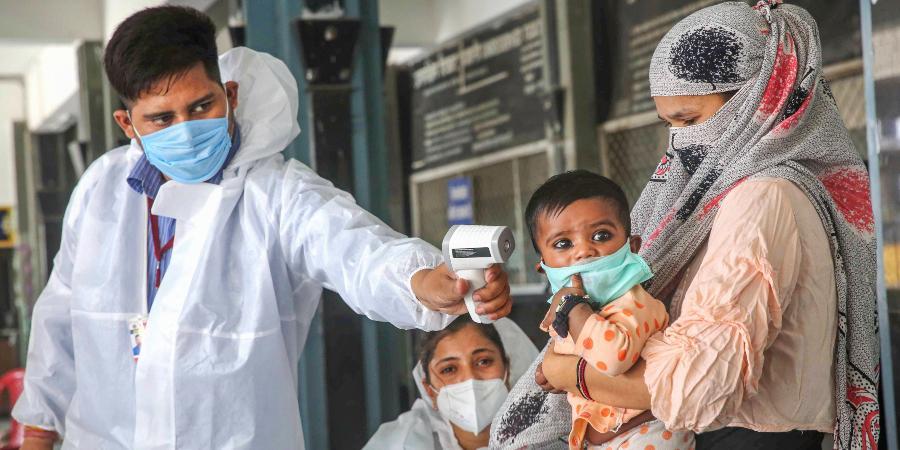
India may not see severe Omicron outbreak; mild peak likely around Feb: COVID panel

India may not witnesses a surge in Omicron cases as seen in the United Kingdom as the “UK model is irrelevant to India”, a government-appointed committee on COVID-19 has said.
M Vidyasagar, the head of the National COVID-19 Supermodel Committee and a professor at IIT-Hyderabad attributes the difference in spread in the two countries to the low sero-positivity and high vaccine penetration in the UK. He says while UK mostly uses mRNA vaccines which offer protection for a short period of time, the same kind of shots haven’t been employed in India, a reason why its vaccinated population may respond differently to the COVID variant.
Also read: No need for Omicron-specific shot, existing vaccines enough: Top COVID expert
The United Kingdom on Friday recorded its highest daily COVID-19 cases – a whopping 93,045 infections, more than the previous high logged in January – for the third consecutive day, talking the country’s COVID tally to 11 million.
India which has reported 101 Omicron cases across 11 states and Union territories, reported 7,447 fresh cases on Friday.
The committee headed by Vidyasagar was formed by the central government to make projections on the path of the virus in the pandemic. It also comprises Professor Manindra Agarwal of IIT-Kanpur and Lt General Madhuri Kantikar, the deputy chief of the Army Medical Service.
While ruling out the possibility of a severe outbreak of COVID, committee estimates that India may experience a rise in Omicron cases around January and a mild peak in February.
Confirming the same to a news website, Agarwal said that the assessment has been made “based on data coming from South Africa, the UK, and Denmark”.
He, however, said it is too early to estimate the daily cases that may emerge during that period.
“Numbers are a bit uncertain at the moment as it is hard to estimate the exact amount of immune escape that could take place in India. Data from other countries is still quite partial,” he was quoted as saying.
Immune evasion occurs when an individual’s immune system fails to recognise and eliminate a virus.
Also read: How oxygen-ready is India as Omicron threat looms?
Agarwal, however, said that the projections are tentative and may change once more data come.
Pointing to the detection of the Omicron variant among people with no travel history, Agarwal said it is likely that community transmission has already begun in India.
The findings, however, haven’t been shared with the government yet.

